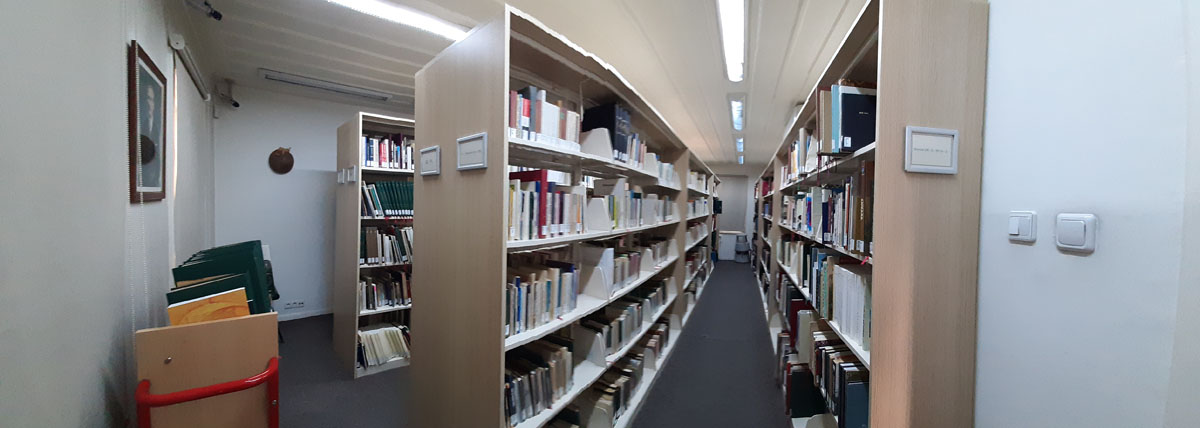
Library
Since the day the Center was founded, VEKAM Library gathered important sources of information regarding Ankara to enrich its collection, and assumed the mission of acting as the urban memory of Ankara.
With a collection reaching for 10,000 in the number of pieces, VEKAM Library offers the reference sources including dictionaries, annals, almanacs, encyclopedias and guides, as well as literary works published in Türkiye as well as wider world, such as novels, memoirs and biographies regarding Ankara, the memoirs of foreign diplomats who served in Ankara, publications concerning the history, culture, geography, economics and architecture of the city, travel diaries, scientific and academic publications containing historical and cultural research on Ankara, reports published by local governments, professional associations and chambers, as well as local and national newspapers to interested researchers.
The library grew ever richer in the fields of Anatolian folklore, fold literature and culture, humor and sufism, thanks to the inclusion of Ali Esat Bozyiğit Collection donated to VEKAM in 2006 by the Bozyiğit Family.
Archive
The archive of the center is composed of two major collections on Vehbi Koç, and on Ankara.
Given the wealth of documents, Vehbi Koç Collection is an indispensable source for the students of the economic history of the Republic, commercial life of Ankara, as well as any research on Vehbi Koç.
Ankara Collection, on the other hand, contains materials of various types, focusing on various themes, offering important information on urban planning, architecture, social history, cultural history, history of education, urban sociology, anthropology, and economic history.
The collection is particularly rich in rare engravings of Ankara predating year 1900, as well as photos and post cards to track the architectural, social and cultural development of the city in the period 1900-1980. Inventory of Ankara’s Real Estate Cultural Assets, containing the plans of the plots where certain significant structures are built, as well as information and photos of the registered landmark buildings in the city are among the most important elements of Ankara Collection.
The maps in the collection offer insights into the administrative, political and geographical transformation of Ankara and its surroundings since the antiquity, as well as a means to observe the planning processes for the capital, through maps, plans and plots drawn up in the Republican period. Ottoman-language documents included in the collection shed light into the period before the Republic, while materials including but not limited to invoices, letters, correspondence, invitations, announcements, posters, and documentaries provide insights into the administrative, political, social, cultural and economic life of the Republican Era.
Yet another unique part of Ankara Collection is about the educational documents gathered to help study the early years of the Education Association (1924-1940s) within the framework of the “Age of Reason Project” initiated by VEKAM in 2003, to commemorate the 80th anniversary of the declaration of the Republic. The photos, correspondence, documents, report cards and diplomas in the archive accompany rare sources including primary, secondary and high school text books in the library collection, to shed light into education in the Republican era. The number of materials with an educational theme grew substantially as documents belonging to the Music Teachers School (State Conservatory of Ankara), one of the educational institutions which played a leading role in modernization were donated as well.
The classification, appropriate storage, scanning and digitization of the materials in the archive, with a view to making them available to researchers, are among the services provided by the Library and Archive unit.
